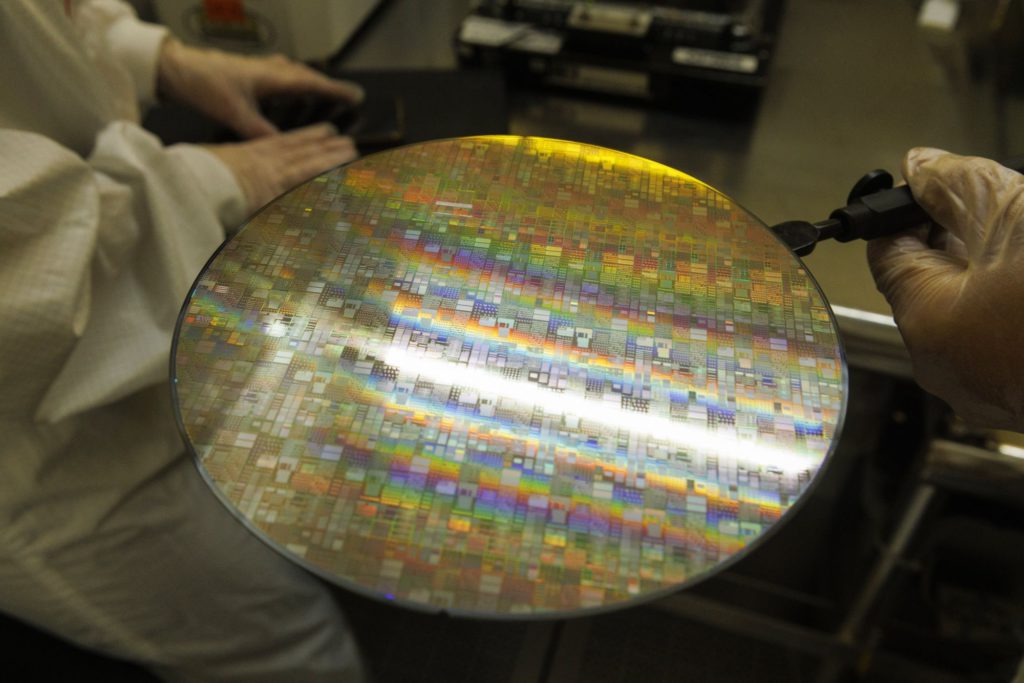(Bloomberg) — The Biden administration signaled support for scaling down a China competition bill to $52 billion in funding for US semiconductor production and a few other broadly-backed provisions as a way to get the long-delayed measure passed quickly.
Commerce Secretary Gina Raimondo said as she left a briefing for senators that lawmakers in both chambers of Congress are “coalescing around a chips-plus kind of a bill, and if that were to happen we would be supportive of that.”
Raimondo said the administration wants to see a measure passed by Aug.
4.
A key Democratic lawmaker and proponent of the legislation, Intelligence Chair Mark Warner, said it was time to make progress, even if that means delivering a smaller bill. Delaying the $52 billion in grants and incentives for chipmaking that are part of the broader United States Innovation and Competition Act would put the US further behind other countries — and imperil national security, he said.
“If we don’t act now, a delay of months will turn into a delay of years” for the US chip industry, the Virginia Democrat said after the briefing, which also included Director of National Intelligence Avril Haines.
Lawmakers have been at loggerheads for months over what was envisioned by legislators on both sides of the aisle as an ambitious effort at enhancing US research and development to counter China’s growing economic influence.
The semiconductor incentives has been a top priority for the Biden administration as well as chip manufacturers such as Intel Corp.
and companies that are heavy users of chips. While the global semiconductor shortage has eased somewhat, there is still limited production for certain chips used in automobiles and home appliances.
Key Republican’s Stance
Warner said Congress should abandon the broader package in order to focus on passing, in the next 10 days, legislation with the chips funding, an investment-tax credit for chips manufacturing and money to speed the rollout of the faster, 5G telecommunications network.
He said Intel and other companies already have new foreign subsidy commitments and could decide soon on boosting operations abroad instead.
Senator Todd Young, an Indiana Republican and one of the original co-sponsors of the competitiveness bill, said he also could support a slimmed-down version.
He added, however, that the quickest solution would be for the House to approve the Senate’s version of the bill, which has been resisted by Democratic leaders in that chamber.
Negotiations to iron out differences between the House and Senate on how to do that effectively came to a halt after Senate GOP leader Mitch McConnell last week threatened to scuttle the bill — despite having voted for the Senate’s version — if Democrats go through with their plan for a separate package of tax increases and climate measures.
Its unclear whether McConnell would extend his threat to a smaller version of the bill.
More stories like this are available on bloomberg.com
©2022 Bloomberg L.P.











